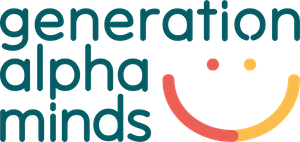RESEARCH
Globally, up to 1 billion children aged 2–17 years experience physical, sexual, or emotional violence or neglect (Hillis et al., 2016). Adverse Childhood Experiences ACEs increase the risk of morbidity and mortality and can have a negative impact on life opportunities and social behavior throughout the life course.
At the heart of Generation Alpha approach is the scientific evidence that ACEs impact the brain, body, and behavior
With increasing numbers of young people facing mental health challenges and suffering from stress, anxiety, trauma, we have developed a 3-month multimodal program for schools, to provide children and adolescents with tools and strategies of stress management, emotional regulation and reprocessing of adverse experiences.

OUR PROGRAM
OUR INTERNATIONAL ACTIONS
Currently, our programs are being implemented in El Salvador, Ukraine, Argentina, and France.

These are some comments from 11-year-olds who participated in the program:
« I practice the superpower of values like sharing and respect, at school and at home. Today more people speak to me with trust and respect, and so do I. It feels really good. »
« I felt calmer thanks to the superpowers I was taught. When I am angry or sad, I calm myself with mountain breathing and the “pause button” bracelet. »
« I thought my classmates were talking about me and saying I was ugly because they looked at me a lot. So, I put myself in their place and thought differently. I started breathing and felt more confident. Before, I didn’t talk to my classmates or trust them. Now I talk to them more and make friends. »
« I saw my monster friends —like fear and anger— and greeted them. After talking to them, I felt relaxed. Monster friends like anger, fear, or sadness are not bad, they are natural: they are emotions. »

TESTIMONIALS
RATES
We offer free programs to vulnerable communities with few resources to ensure our programs can be implemented where needed.
Partner centers at the higher end of our sliding scale allow us to offer support to smaller, less-resourced schools and community organizations, maintain staffing and research to improve our programs.

